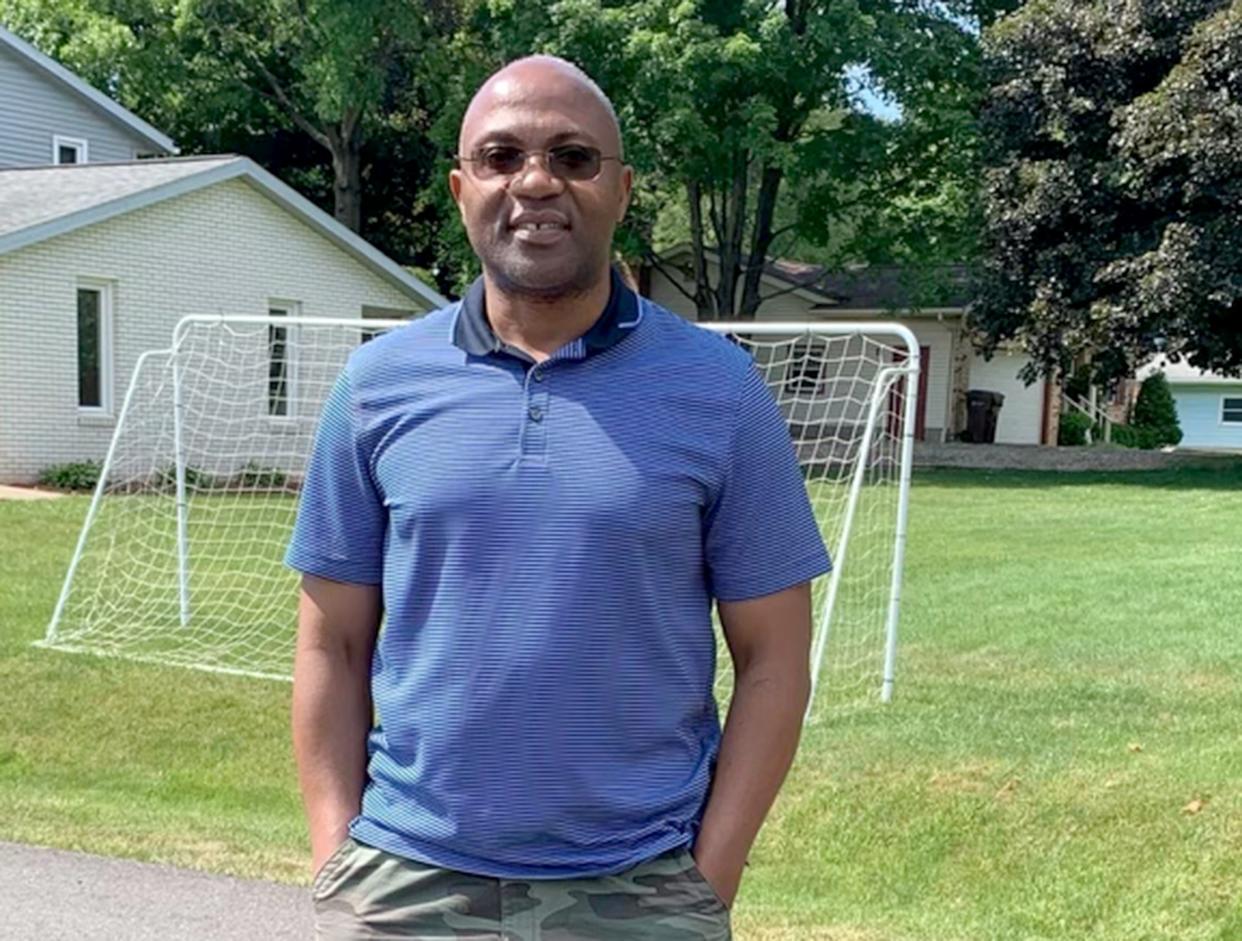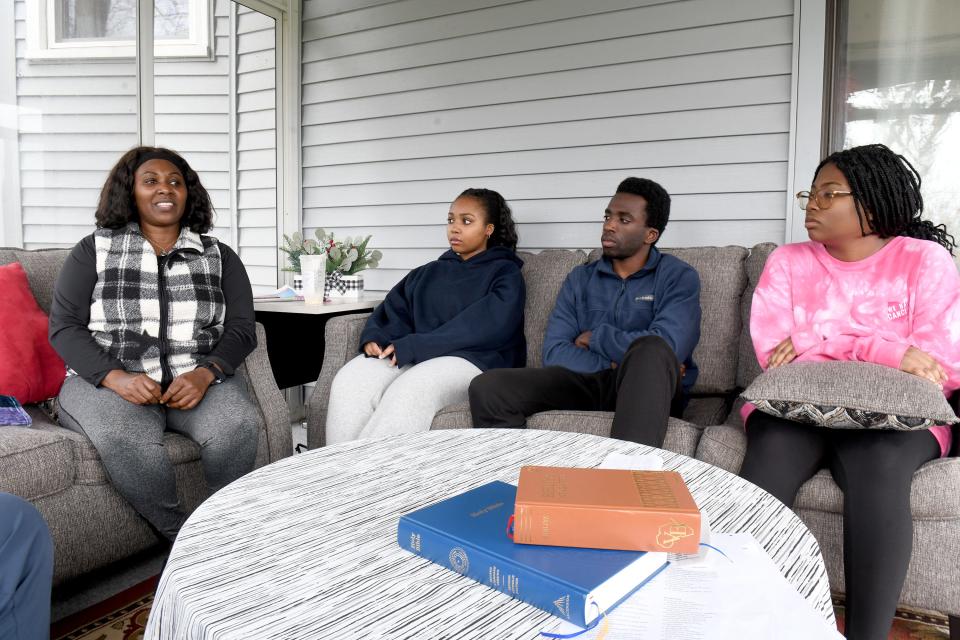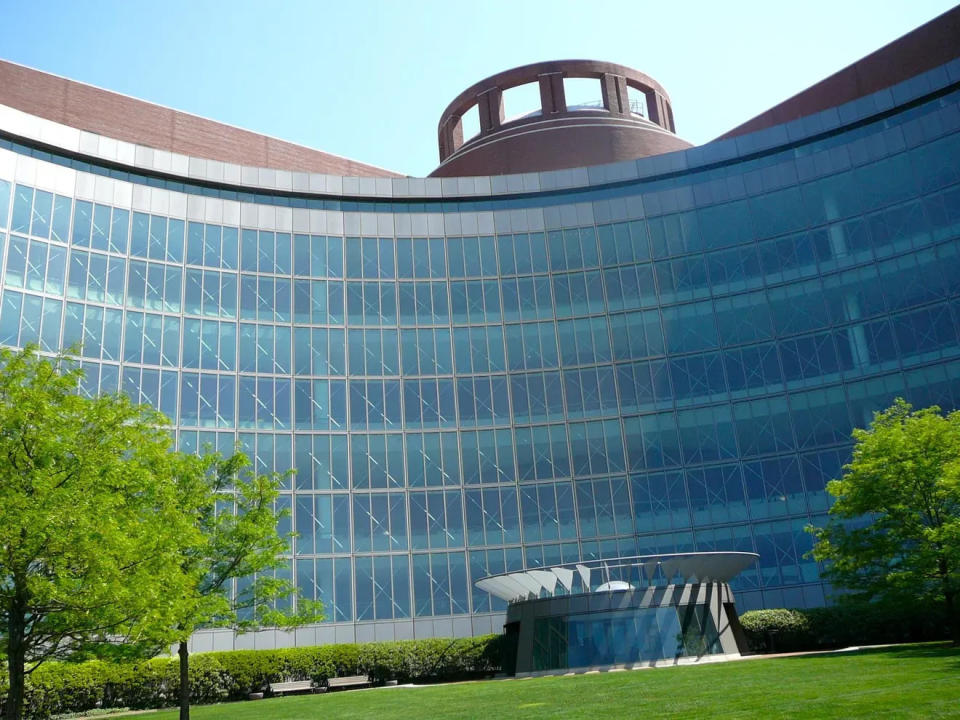Stark County man accused of 1994 Rwandan genocide is denied bond again

Eric Nshimiye won't get to come home anytime soon.
The 53-year-old Lake Township man — accused of Rwandan genocide 30 years ago — was denied bond for a second time. He'll remain in federal custody, as six separate immigration and perjury charges against him continue to unfold in U.S. District Court in Boston.
Chief Magistrate Judge Donald L. Cabell rejected written arguments from Nshimiye's attorneys that he be freed on bond to better assist in preparing a defense.
In his ruling on Friday, Cabell wrote that nothing much has changed since Nshimiye was first denied bond in Youngstown, eight days after his March 21 arrest.
Although Nshimiye himself and four friends and family members have since offered their houses as collateral against a bond, Cabell said there already was ample time for such sureties prior to his March 29 hearing in Ohio.
Cabell wrote: "The defendant had sufficient time (eight days) to prepare for the detention hearing and confirmed having adequate time to prepare for that hearing in open court."
Arguments for and against bond for Eric Nshimiye
Prosecutors, who declined comment for this story, have argued that Nshimiye, a married father of four, devout Catholic, and an electrical engineer at Goodyear Tire & Rubber Co. in Akron, is a flight risk.
They say he's lived a lie for three decades. That the family man now is not who he used to be. If found guilty of perjury, obstructing justice, and aiding and abetting and falsifying, concealing and covering up a material fact, he could eventually be sent to Rwanda to be tried for alleged 1994 genocide crimes.

Nshimiye's attorneys, Kurt Kerns and Maksim Nemtsev, did not respond to a request for comment.
But they argued that if their client wanted to run, he'd have done it by now. In court documents, they've pointed out that Nshimiye knew he was under the Department of Justice microscope since 2019, when he testified in Boston on behalf of an old Rwandan friend.
"Mr. Nshimiye has been a model citizen since his arrival in the United States," his attorneys wrote. "While the government has attempted to paint him as a fugitive Rwandan war criminal, the evidence will eventually prove otherwise."
Allegations of genocide behind U.S. charges
Nshimiye, a native of the African country, is accused of lying about his past to gain entry, then later citizenship in the U.S. He's accused of repeating the lies when he testified in Boston on behalf of Jean Leonard Teganya five years ago.
Teganya — a former college roommate of Nshimiye's — was on trial for some of the same charges Nshimiye faces. Like Nshimiye, Teganya was accused of lying about his role in killing innocent people during the genocide.
During Teganya's trial, Nshimiye testified that his friend is a good man who couldn't have killed anyone. Although both men worked at a Butare hospital, in an area where genocide occurred, Nshimiye said he was in a different city at the time.
Teganya was convicted in Boston in 2019.
Prosecutors, in court documents, have said they'll prove Nshimiye was in Butare, too, and that he raped and killed; that he, like Teganya, was a member of Interahamwe, a violent youth wing of the ruling MRND party when civil war erupted on April 7, 1994; and was among the Hutus who sought out ethnic minority Tutsis during what would be a 100 days of killing that claimed 800,000 lives.

According to court documents, Nshimiye's alleged crimes include:
The murder a 14-year-old Tutsi boy, a short time after Nshimiye and others had killed the boy's mother.
Helping to round up 25 to 30 Tutsis hiding in the forest near the university, then killing them and burning their bodies.
Directed Interahamwe members to rape and kill six female university students — struck one with a nail-studded club, then hacked her to death.
Captured and killed Tutsi tailor who made coats for doctors at the hospital.
This month, prosecutors included another allegation in a document filed to oppose Nshimiye's bond request. In it, prosecutors linked Nshimiye to Beatrice Munyenyezi, who operated a hotel and roadblock during the genocide.
"Notably, Ms. Munyenyezi was convicted for conduct in Butare, the same town in which (Nshimiye) is alleged to have perpetrated his crimes as a medical student," the prosecutors wrote. "Moreover, the government anticipates that it will offer evidence at trial in this matter which links the defendant to the hotel and roadblock which Ms. Munyenyezi controlled during the genocide."
A status conference on the Boston cases against Nshimiye is scheduled for June 13.
Reach Tim at 330-580-8333 or tim.botos@cantonrep.com.On X: @tbotosREP
This article originally appeared on The Repository: Eric Nshimiye, accused of Rwandan genocide, denied bond again

